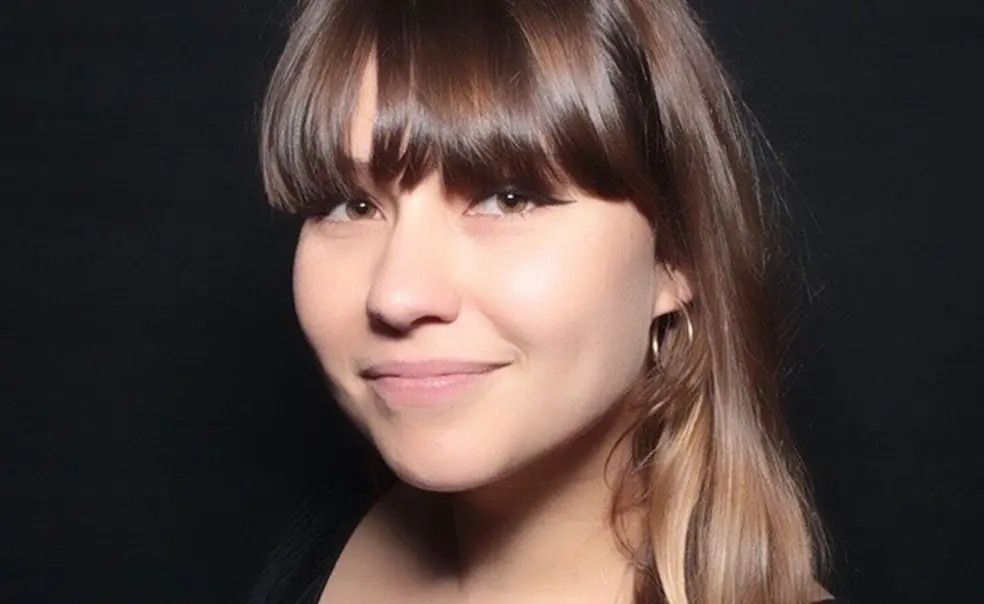Amy Solomon’14 is a film and TV producer from Los Angeles. She has worked as the producer for HBO’s Silicon Valley and Barry. In her first book, Notes from the Bathroom Line, Solomon curates new essays, satire, artwork and more by 150 women in comedy. At Princeton, she created her own independent major in journalism.
When you look at the book, what do you think is its main message?
The subtitle is Humor, Art, and Low-grade Panic, so there’s definitely an undercurrent of anxiety, for sure. There’s this one piece where this girl, Anna Greenfield, annotated her childhood diary. We scanned a bunch of pages from her diary from when she was 11, and it’s amazing. She annotates it and then writes a letter back to her 11-year-old self. And there is this line that says, “How should I look, dress, act, be?” I feel that that’s kind of a question that runs throughout all of it, like “Am I doing this right?” It was also important to me that it was just women being funny about anything and everything. It’s not just about female body stuff or dating, it’s about everything.
How does this book respond to the current comedy industry?
What I had been noticing was women writing their own memoirs, kind of starting with Tina Fey’s Bossy Pants, but there was just never a lot of women in one place. And my belief was always that we are stronger together. Also, so many times when you watch a TV show, you realize that there’s only one woman in that writers’ room or in a high position. In response, this book says, “Look, here’s 150 amazing women that you could hire.”
How did you select the comedians to include?
It was kind of overwhelming because I’m a fan of so many. I just sort of started asking people one at a time, and then I would ask them “Who are your favorite women?” And it just sort of started as a web that slowly grew. And I wanted it to be absurdly diverse. I wanted to make sure I had every kind of voice in there.
What are a couple of your favorite pieces in the book, and what makes them so special?
So there’s truly everything — there’s comics, there’s sheet music, there’s a parody recipe. Emily Gordon did this comic, a long-form six-page comic, a list of the things she obsesses over instead of sleeping. And they range from serious to “What does CVS stand for?” It’s really funny, and the illustrations are unbelievable. And then there are all of these pages throughout the book where I asked a question to a lot of the women and then let them answer. So there’s one that asks, “What’s a sentence that would be excerpted from your obituary?” Or like, “What’s a commonality that a lot of your exes share?” They are just kind of jokey one-liner-type stuff, so that’s really fun, too.
Was this book at all informed by your undergraduate experience, in general, or by your independent journalism major?
I say this in my introduction for the book, but funny women are just my passion. In college I just felt inundated by funny women. Quipfire was where I met all of my best friends. Because I edited this book, being a journalism major definitely helped me by giving me the skills to edit, especially John McPhee’s class. When I got to Princeton, I was a truly horrible writer. I had this professor who told me, “You write the way a Chicago politician speaks.” I learned that writing is rewriting. And so most of my job was receiving these amazing pieces and then being like, how could we tighten this, how could we strengthen the main idea, which is all stuff I learned in college.
You wrote your thesis about comedy and mental illness. Does the book deal with any of the themes you studied?
I just think that the best comedy is pushing the envelope of the stuff we are really not comfortable talking about as a society yet. And since my thesis, we’ve gotten so much more comfortable talking about mental health, but I still think that we are not quite ready for frank conversations. And so, I think that a lot of the comedians I love are really open about their struggles and talking about them in a funny way. My thesis ultimately said that I don’t think comedians are necessarily more mentally ill than regular people, they’re just the ones who are allowed to talk about it.
Watch Solomon discuss women in comedy with Princeton emerita president Shirley Tilghman, Saturday Night Live’s Cecily Strong, Aparna Nancherla, and Naomi Ekperigin at a March 14 event by the Office of the Dean of Undergraduate Students:










No responses yet